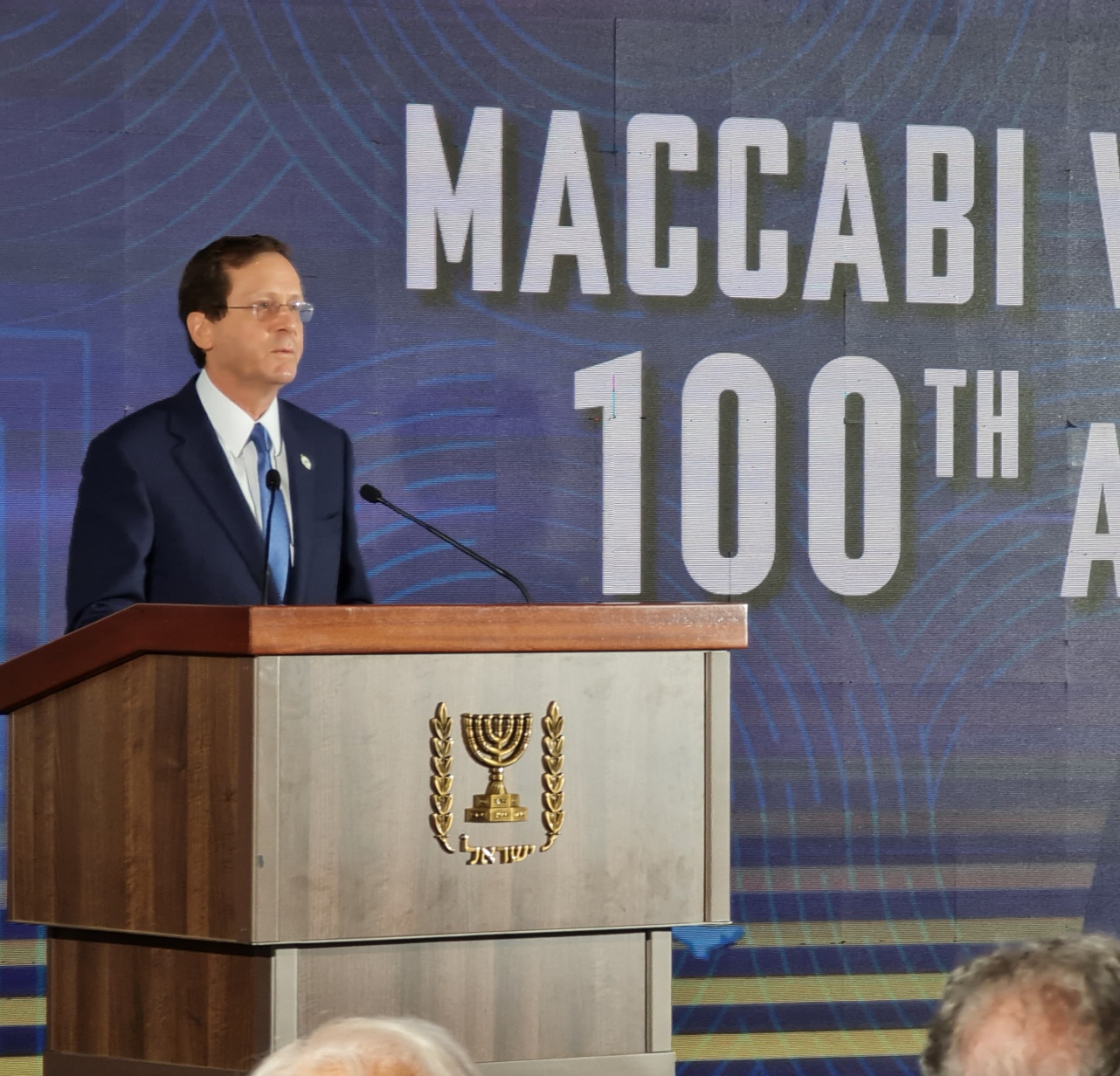Art & Culture
- Details
- Written by Silvia G. Golan
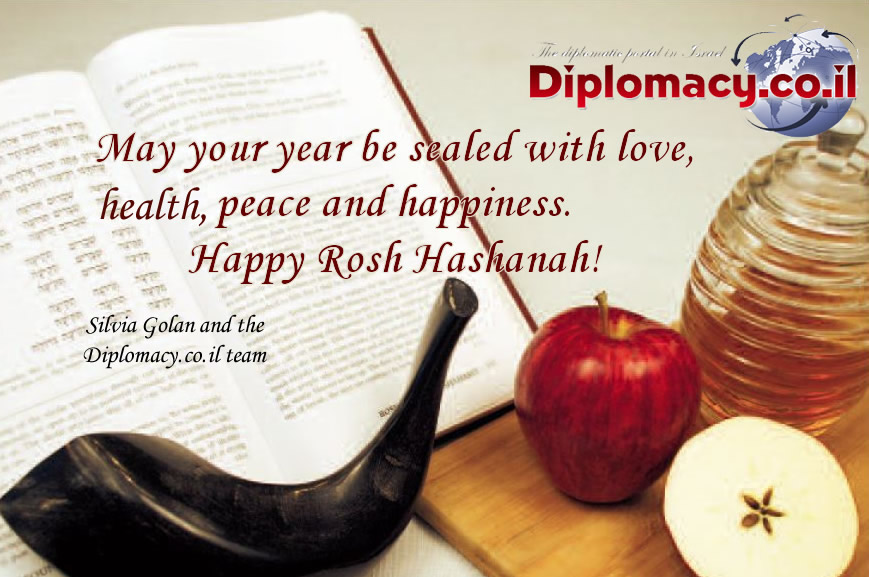
A number of key Jewish holidays – some of which are full legal holidays in Israel – will take place this year between September 6-28. We would like to provide the following brief summary.
Preparations for the Jewish New Year
The period preceding the Jewish New Year is marked by special penitential prayers, recited before the regular morning prayers, and the blowing of the ram’s horn (shofar in Hebrew) after the morning prayer service. Jews of North African and Middle Eastern origin begin to recite these special prayers the month preceding Rosh Hashanah (New Year), while Jews of European origin begin to recite them from the week before the New Year. These special prayers are said daily (except on the New Year holiday itself and the Sabbath) until Yom Kippur (16 September).
Rosh Hashanah
Rosh Hashanah (the two-day Jewish new year), the observance of which is mandated by Leviticus 23:23-25, will begin at sunset on Monday, 6 September and conclude at nightfall on Wednesday, 8 September. Both days are marked by special prayers and scriptural readings.
The centerpiece of the Rosh Hashanah service is the blowing of the shofar during morning prayers. (The shofar is not sounded on the Sabbath should either of the two days fall on Saturday.) Both days are full public holidays and, as on the Sabbath, there will be no public transportation or newspapers. In addition, many businesses, museums and other institutions, which are normally open on the Sabbath, will be closed over the holiday.
Rosh Hashanah is also characterized by special customs and delicacies. The first is the eating of apple slices dipped in honey, symbolizing the hope that the coming year will be “sweet.” The second involves going to a natural source of flowing water (such as an ocean, river, or spring) and reading a selection of scriptural verses – to symbolically “cast off” the previous year’s sins; this practice derives from Micah 7:19 (“…and You will cast all their sins into the depths of the sea.”) This ceremony takes place on the first day of Rosh Hashanah (or on the second, if the first day falls on the Sabbath).
The Period between Rosh Hashanah and Yom Kippur
The ten days between New Year and Yom Kippur (inclusive) are known as “The Ten Days of Repentance”. Jewish tradition maintains that this is a time of judgment when all people and nations are called to account for their deeds of the past year, and when their particular fates for the coming year are decided.
The day after the New Year holiday is a day of fasting known as the Fast of Gedaliah, and commemorates the murder of Gedaliah, the Jewish governor of Judea, who was appointed by the Babylonians after they captured Jerusalem in 586 BCE; the episode is recounted in II Kings 25:22-25. (When the day after Rosh Hashanah is a Saturday, the fast is postponed by one day.) The fast will extend from sunrise on Thursday, 9 September until nightfall. Special scriptural readings are recited; but the day is not a public holiday and businesses and transportation will run as per their regular schedules.
A single Sabbath, known as the “Sabbath of Repentance”, always occurs between Rosh Hashanah and Yom Kippur. This Sabbath (15 September this year) is marked by a special reading from Hosea 14:2-10, beginning with, “Return, Israel, to the Lord your G-d.”
Yom Kippur
Yom Kippur (Hebrew for “The Day of Atonement”) begins at sunset on Wednesday, 15 September, and concludes at nightfall the next evening. Its observance is mandated by Leviticus 16:29-31 and 23:27-32. The holiest day of the year, Yom Kippur is the day on which, according to Jewish tradition, our fates for the coming year are sealed. Synagogue services – centering on the penitential prayers – will continue for most of the day and include special scriptural readings (including the Book of Jonah in the afternoon). Memorial prayers for the deceased, said four times a year, are recited on Yom Kippur. At nightfall, the shofar is sounded once to mark the end of Yom Kippur.
Yom Kippur is a full public holiday in Israel and almost all establishments will be closed. There will be no radio or television broadcasts. Since Yom Kippur is a day of introspection, completely separate from the normal course of daily life – the physical aspects of our lives are sublimated while we concentrate on our spiritual concerns – the day is marked by a full (sunset to nightfall) fast. The wearing of leather, the use of cosmetics, bathing and marital relations are likewise forbidden.
Sukkot
The seven-day Sukkot festival, mandated by Leviticus 23:34-35 and 23:39-43, begins at sunset on Monday, September 20 and concludes at nightfall on Monday, September 27. The first day, Monday September 20 at nightfall until Tuesday evening nightfall, is a full public holiday. All seven days of the holiday are marked by special prayers and scriptural readings – including the Book of Ecclesiastes, which is read on Saturday, 29 September. Sukkot is a joyful, family-oriented holiday, which follows – and provides a contrast to – the somber, introspective and private character of Yom Kippur.
During this period many businesses and institutions will either close or operate on a reduced basis. Schools are closed, and families often enjoy vacations together.
Sukkot is characterized by two main practices. Jews are enjoined to build, take all of their meals in, and (if possible) sleep in, temporary huts topped with thatch or palm fronds during the festival. These huts (Sukkot in Hebrew) commemorate the temporary, portable dwellings in which the Jewish people lived during their 40-year sojourn in the wilderness that followed their liberation from slavery in Egypt. The second main Sukkot observance is the special bouquet of the “4 species” – consisting of a closed palm frond, a citron, a myrtle branch and a willow branch – that is held during morning prayers on each of the seven days (except the Sabbath); its origins derive from Leviticus 23:40, many traditional explanations of its symbolism have been cited. Throughout Israel Jews can be seen enjoying meals in sukkot of all kinds, and reciting special prayers of thanks with the 4 species.
Shemini Atzeret (Simhat Torah)
The Shemini Atzeret (literally “The Eighth Day of Assembly” in Hebrew) holiday immediately follows the last day of Sukkot, this year beginning at sunset on Monday, September 27 and concluding at nightfall on Tuesday, September 28. Its observance is mandated by Leviticus 23:36. It is a full public holiday. (Even though it follows the seven-day Sukkot festival and is often considered part of Sukkot, it is, in fact, a separate holiday. The special bouquet is not used and the obligation to sit in the sukkot no longer applies.) The day’s prayer services include the memorial prayers for the deceased, as well as the prayer for plentiful rainfall during the coming winter.
Shemini Atzeret, however, centers around its special scriptural readings. On Shemini Atzeret, the yearly cycle of Torah (the first five books of the Bible, i.e. Genesis to Deuteronomy, one section of which is read on each Sabbath during the year) readings is both completed and begun anew. This event is accompanied by dancing and singing, sometimes continuing for several hours; in religious neighborhoods, these celebrations often spill out into the streets. Thus, the holiday is also referred to as Simhat Torah (“Rejoicing of the Torah” in Hebrew).
Wishing a happy, healthy, and successful New Year from www.diplomacy.co.il & https://debateforpeace.org
Silvia G Golan and Diplomacy Staff
- Details
- Written by Pamela Hickman
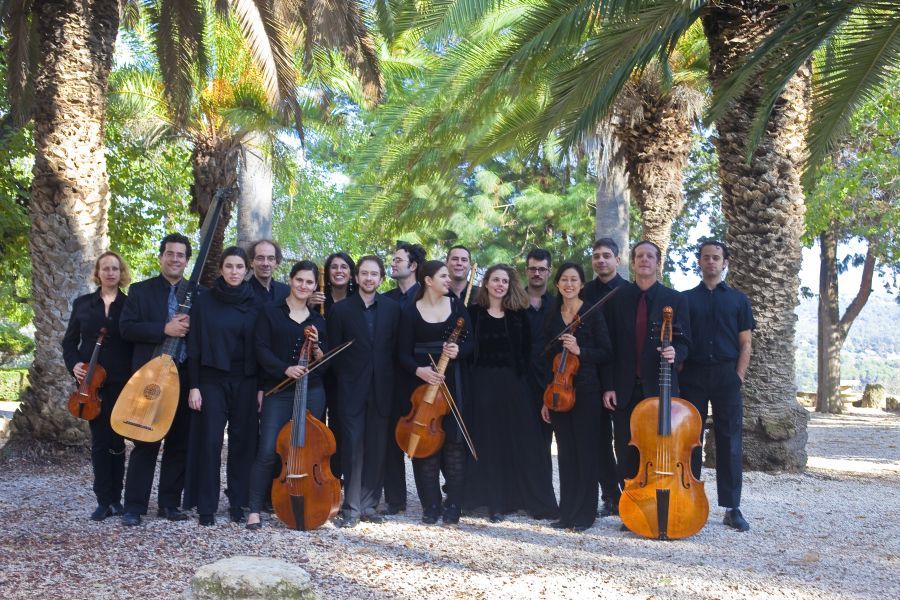
Have you been missing the Abu Ghosh Music Festival as much as I have? After a hiatus of two years, due to COVID-19 pandemic constraints, the Abu Ghosh Music Festival is about to spring back to life. Popular from the 1950s as an annual event, its organization was taken over in 1992 by music-lover Gershon Cohen and choral conductor Hanna Tzur, the revamped festival then taking place twice a year. Always well attended, people have been flocking to the two Abu Ghosh churches to hear the festival concerts, also enjoying the outdoor events and the relaxed, holiday atmosphere.
As the Kiryat Yearim Church is presently undergoing renovation, the Sukkot Festival (September 22-26, 2021) will take place at the Yitzhak Rabin Centre in Tel Aviv. The Rabin Centre, located on a hill, boasts commanding panoramic views of the Yarkon Park and of the city of Tel Aviv, beautiful gardens and an imposing auditorium – the Leah Rabin Hall. A new team will take over the running of the festival, most of its members active on the Israeli music scene - Amit Tiefenbrunn - music director, Shlomit Sivan-Rosen - head of production, Tessa Harari - management/production, Alon Harari - head coordinator and Yeela Avital - participation director and fundraising.
The 2021 Abu Ghosh Music Festival will offer four days of music of different styles - classical-, chamber- and folk music, Israeli- and ethnic music, with interaction between artists and audience and food and good wines; in short, a multi-sensory experience awaits all festival-goers! Concerts will feature some of the country’s finest ensembles - the Israeli Vocal Ensemble, the Carmel Quartet, Ensemble Barrocade, the Ramat Gan Chamber Choir, the Tel Aviv Collegium Singers and the Galilee Chamber Orchestra.
The festival will also host Hortus Musicus (Estonia), conductor: Andres Mustonen, in a program of Italian music and with Israeli mezzo-soprano Maya Amir as soloist. “From Bach to Shem Tov”, a program combining classical music with Israeli contemporary music will feature flautist Shem Tov Levi himself. The “Quinta and a Half” (“Kvinta Va-Hetzi”) Vocal Ensemble will present a complete a-capella program of Israeli repertoire - original and unique arrangements of some of the best-loved songs of Arik Einstein, Matti Caspi, Shlomo Gronich, and more.
And for those looking for some fiery emotion, El Fuego Del Flamenco will present a program of flamenco music and dance. And how about some Brazilian music performed by the Shorolha Ensemble for a magical night show in the Triguboff Garden overlooking the Tel Aviv skyline? In cooperation with the Polyphony Foundation, the program for Sunday September 26th will present Arab musicians in performances of Arabic- and western music. The Eldrawish Music Ensemble of the Galilee will perform Sufi music and dance.
There will also be a concert of French chansons, Arab poetry and music composed by pianist Saleem Abboud Ashkar, featuring a string quartet and soprano Nour Darwish. The festival will conclude with a concert titled “Stabat Mater”, performed by the Galilee Chamber Orchestra with Saleem Abboud Ashkar conducting.
For more information on the 2021 Abu Ghosh Music Festival and for ticket reservations: https://agfestival.co.il/
At the Yitzhak Rabin Center in Tel Aviv ,Rokah 77, Tel Aviv.
Schedule for Wednesday, September 22
Schedule for Thursday, September 23
Schedule for Friday, September 24
Schedule for Sunday , September 26
Entrance to the festival is according to the rules of the Green Pass.
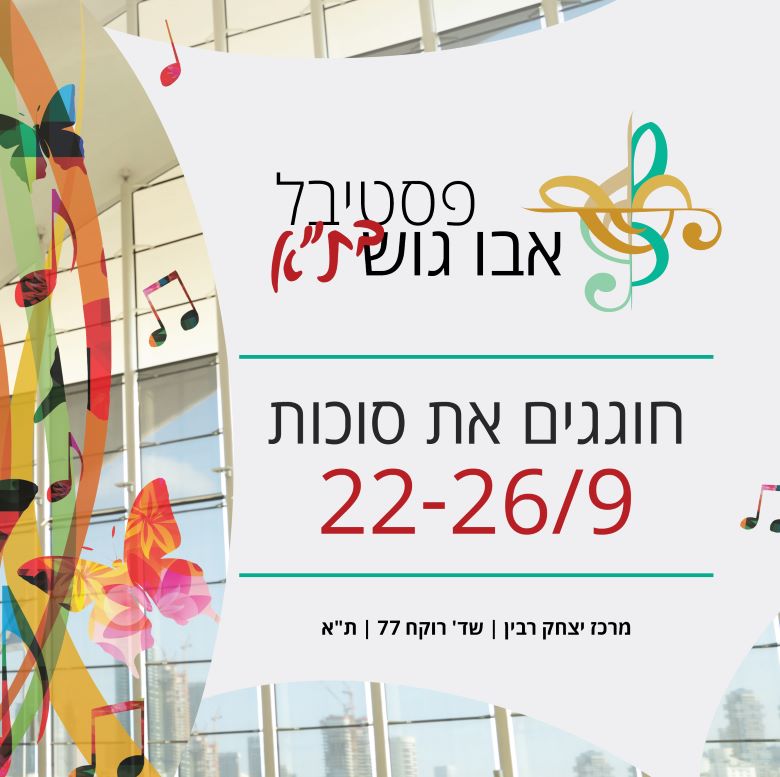
Photos Yoel Levy
- Details
- Written by Silvia
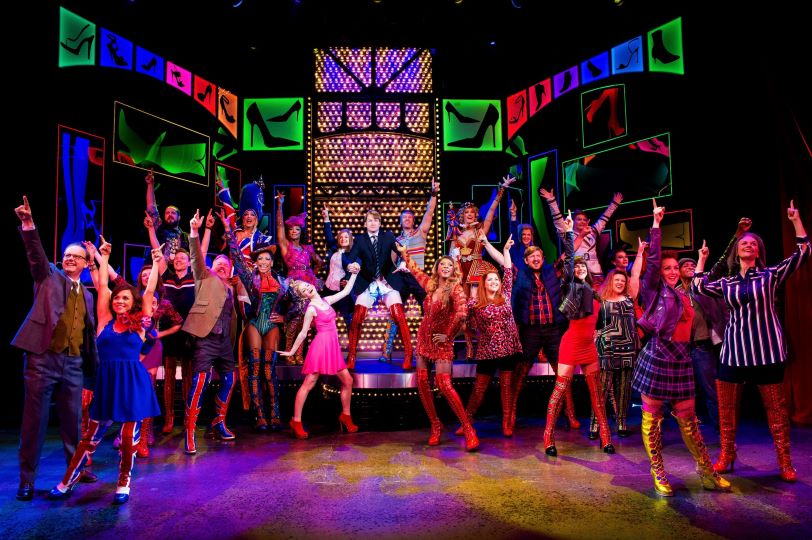
Tel Aviv Museum of Art
Tuesday 10th August to Saturday 14th August
All films are translated into Hebrew
Ticket prices include entrance to the museum during gallery opening hours
Filmed shows
Musicals: Three spectacular productions coming straight from London -
Kinky Boots
The musical, based on the British film, hit Broadway and was a huge success and won many Tony Awards. By Harvey Firstein, Cindy Laufer wrote and composed the songs. The production moved to London and was shown there with great success as well. The production from the Adelphi Theater will be screened as part of the festival. The story of a failed shoe factory manager, aided by a drag queen succeeds, and together these two opposites create a special line of boots, and mostly discover acceptance, understanding and friendship. A sweeping and exciting musical that takes us from the sleepy city of England to the runways of Milan's fashion shows. An evening of great fun and empowerment
The musical received 6 Tony Awards, including "Best Musical", 3 Olivier Awards
****
"Stunning, wonderfully cheeky and uplifting" Time Out
The classic musical of Rogers and Hammerstein
The story of Anna the English teacher and her son Louis who come to the Kingdom of Siam, to teach the many wives and children of the King of Siam, who is trying to open his country to the West
Kelly O'Hara is re-enacting her Tony-winning role in a Broadway production, alongside Japanese Oscar-nominated Ken Watanby. Bertald Cher's glamorous production, favorite songs, memorable dance pieces, footage from the legendary Palladium Hall in London. The musical that will make you dance in a chair and get excited.
"42nd Street"
A stage adaptation of the classic film, which tells the behind-the-scenes of the world of theater, and the classic story of the choir dancer who gets the one-time opportunity, when the star breaks her leg
Dance performances
"Red Shoes" - Matthew Bourne
Matthew Born who bought his world in his special adaptation of "Swan Lake" in which the prince fell in love with a male swan. Bourne adapted the famous film, about the girl who dreams of being the best dancer in the world, and created a spectacular, sweeping and breathtaking work. The work features Adam Cooper, a former royal ballet singer who was revealed in all his glory in the form of the swan in Bourne's Swan Lake. A special photo with an audience, a month before the closure in London, at Saddlers Wells Hall
The production of Rudolf Noriev, who took Patifa's famous choreography and made changes to it in a brilliant production. In the production, he gave the role of the prince equal weight to the character of Odette / Odile. A production that gives music an emotional and profound meaning
"The Pirate - La Corsair" performed by soloists and dancers from the Mariinsky Opera House in St. Petersburg
One of the favorite classical dance pieces. A variety of oriental and erotic dances. Unforgettable brewery clips that will make you applaud enthusiastically even in front of the big screen
"Morris Bejart, The Dancing Soul"
A documentary about the great composer, from his childhood in Marseille to his way to the pinnacle of the dance world with the 20th century ballet in Brussels and a ballet by Bazar Lausanne at the end of his life
"Opera "Don Giovanni
The famous opera of Mozart and de la Punta is given a modern stage expression in the performance of the Lyon Opera House, in one of the most beautiful operas ever written, full of eroticism and excellent musical performance
"Paolo Conte"
Many are familiar with the song It's Wonderful by Italian composer, writer and singer Paolo Conte. The song accompanies a familiar commercial, but Conte has a host of great songs and complex and important lyrics. A film that combines his performances, interviews with him and interviews with great Italian artists from various fields, such as Roberto Benini, Vinicio Caposella, Isabella Rossellini and more
Plastic art and architecture
A new documentary that has not yet hit theaters, which tells the story of the beloved artist's life and brings an encounter with materials that have not yet been revealed, including her personal belongings. The film additionally revives some of her legendary paintings
"Klimt and Sheila - Amor and Psyche"
A film that traces the work of the two great Austrian artists, in the late 19th and early 20th centuries, through archive footage and a visit to the marvelous museums in the city of Vienna.
Gauguin
A special film consisting of two parts: the first is the life story of the special artist, which raises important questions about the treatment of indigenous women and colonialism, and the second part is a guided and fascinating tour of Gauguin's special portrait exhibition at the National Gallery in London
A film that follows Gustav Eiffel's struggle to build in Paris the special tower that changed the face of the city and became its most prominent icon
As well as documentaries about other artists including Picasso, Renoir and contemporary Venezuelan artist Carlos Cruz Diaz
Or by phone * 6876
- Details
- Written by President of the State of Israel office
.President Isaac Herzog and the First Lady celebrate the Maccabi World Union's 100th anniversary celebrations at Kfar HaMaccabiah
Today, President Isaac Herzog and First Lady Michal Herzog participated in the Maccabi World Union's centenary celebrations at Kfar HaMaccabiah in Ramat Gan. The event was also attended by Culture and Sports Minister Hili Tropper, MWU chairman Amir Peled, Maccabiah Games CEO Roy Hessing, and Israeli Olympic medalists.
During the event, President Herzog was given a surprise gift: a photograph from the Twelfth Maccabiah Games, featuring his late father Chaim Herzog in his role as President with the WMU's leaders and its then-chairman, the late Yisrael Peled, father of the current chairman, Amir Peled.
President Herzog began his speech by saluting the Maccabi World Union for a century of activity: "Members of Maccabi in Israel and around the world, happy birthday! One hundred years is no trifling matter for any organization, certainly for such a significant Jewish, Zionist, educational movement like the Maccabi World Union. Maccabi represents a wonderful combination. It succeeds in being both a symbol of excellence in sport, of ambition, and of the pursuit of victory; and it is also a Zionist educational movement that reaches young Jews around the world and kindles the spark of Zionism in them. Not everyone knows it, but I was born to a Maccabi member."
President Herzog noted his family's special connection to the movement: "My father, the late Chaim Herzog, was Ireland's bantamweight boxing champion in his youth, and of course an ardent member of the Maccabi club in Dublin. I mention my father's youth not as an old memory, because as everyone knows, being in Maccabi is not something that goes away after a few years. As you see in the photograph on the screen, my father was a Maccabi member and always remained a Maccabi member.
"The movement's most outstanding enterprise, the Maccabiah, has also been with me at every station in life. The Maccabiah Games are not just a sporting enterprise, but a national, Zionist, educational enterprise of historic importance, whose name precedes it. It would be hard to exaggerate the importance of the Maccabiah Games to the Jewish People, to Jewish peoplehood. Its influence on this enterprise, on the most important building blocks of our nation, is evident every day and every hour.
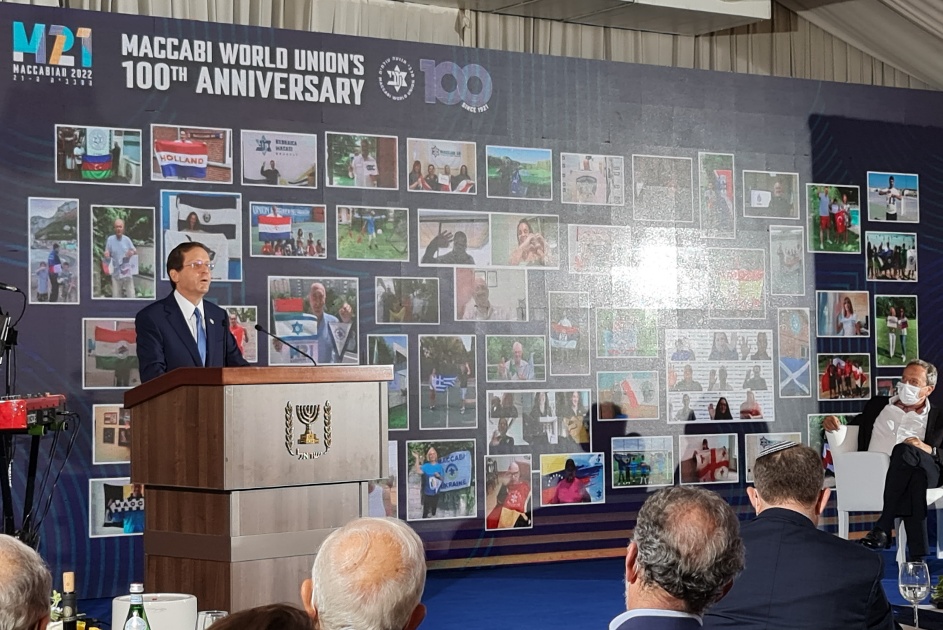
"The Maccabiah has become the second-largest sporting competition in the world after the Olympics. It is also the biggest Jewish-Zionist gathering in the world, and tens of thousands of athletes are expected to come to Israel in a year for a true sporting celebration. There will be athletes here of all ages, from 12 to 90. Among them will be athletes with cognitive and physical disabilities. Thank you to you, the leaders of Maccabi, for wisely opening the gates to everyone. The medals won by Artem, the Maccabi member who brought us a gold medal, and his friends are important and precious, but the participation of people with disabilities warms our collective Jewish and Zionist heart."
In a special message in English to members of the Maccabi World Union all around the world, he added: "The centenary of the phenomenal Maccabi World Union is a celebration of Jewish values and a display of continuous Jewish unity, love of Israel, and passion for sports. Although miles apart, we know that we all belong to the same people, and prolonged social distancing and imposed restrictions cannot diminish the bond we share. I applaud Maccabi members, in every club and continent around the globe, for your fortitude and dedication, and I look forward to greeting each and every one, in Israel, a year from now, at the Maccabiah."
President Herzog ended by saying: "Shana Tova Umetuka to the Maccabi family and all its fans. May we all merit a 'sound mind in a sound body' this year, and may Maccabi continue to flourish for at least another century! Happy birthday!"
Photo credit: Silvia G.Golan
- Details
- Written by Silvia
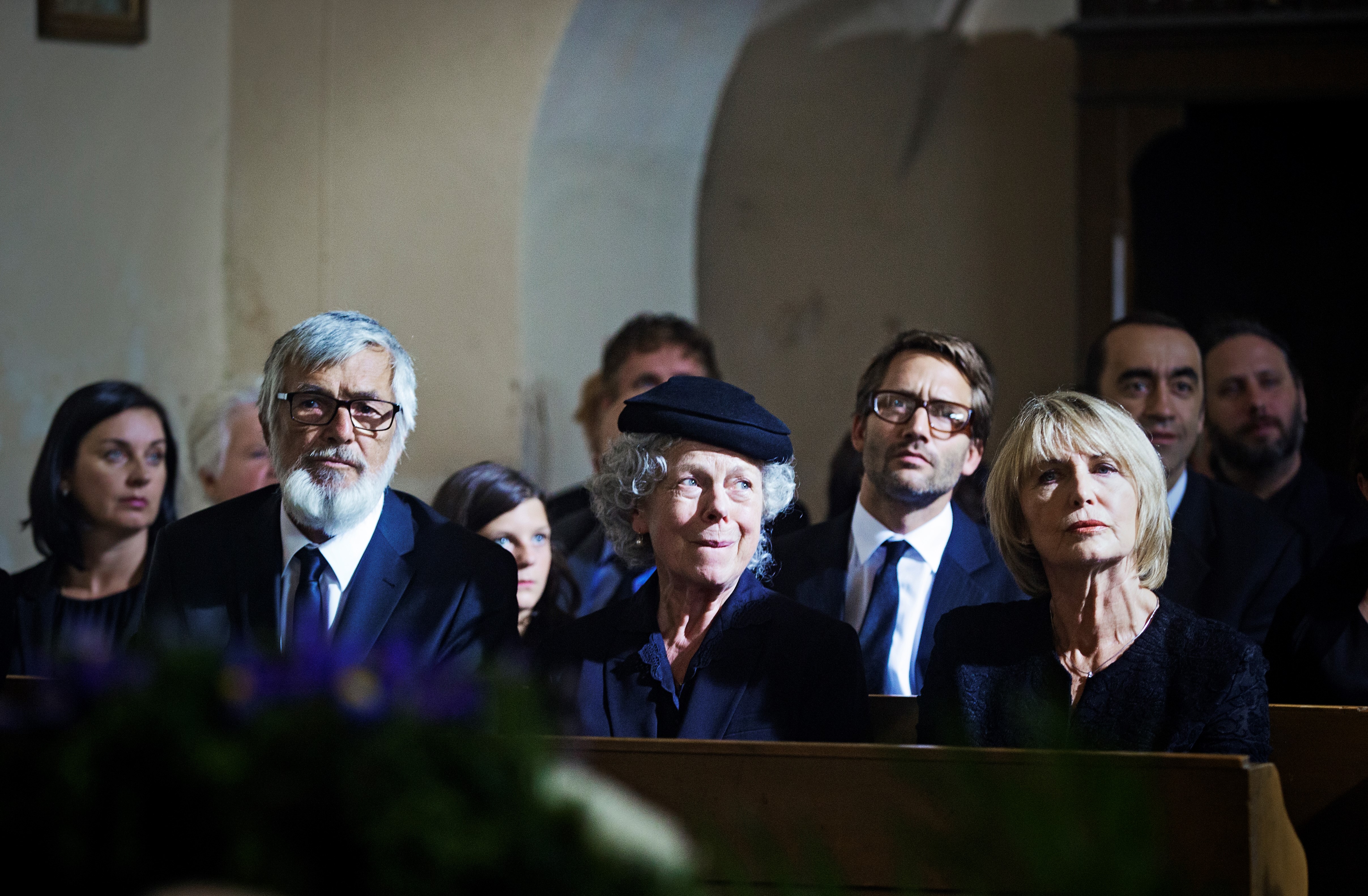
Who said that only Kafka is lacking in our challenging reality? What is really needed is Czech films –bright, phycological and sarcastic. So please find:
Czech Film week will be held from 14.08 till 31.08 in five cinematheques in Israel: Jerusalem, Tel Aviv, Haifa, Herzliya, Holon ( At the beginning only three were included, but it became clear, more cities are interested).
Robert Mikolas, director of the Czech House Jerusalem, former Army correspondent of Radio Prague in the Middle East, and a writer with ironic tough to the life has choose six films to caught many. (Recently he wrote with bitter irony that at least one positive expectation of the corona lockdown, to create a baby boom, was shattered by the reality that it has led to a divorce boom, as people are afraid of being infected. So we really need humor these days, he asserts.)
The festival opens with CHARLATAN, the new film by acclaimed director Agnieszka Holland on August 14 at 19:30 at Jerusalem Cinematheque. Ivan Trojan, winner of four Czech Lions for best actor in a leading role, stars in the biographical drama about faith healer Jan Mikolasek will open the festival. The following day, August 15, the opening ceremony will take place at the Cinematheque in Tel Aviv. The festival will open in Haifa on August 16.
After the big success of Burning Bush devoted to the tragic figure of Jan Palach, Agnieszka Holland turned to the Czech history again.
Jan Mikolášek was a very famous healer, an unusual medicine man, who was using unorthodox methods of diagnosis and treatment. Those special skills made him not only well known but also rich. In Czechoslovakia before World War II, he became some kind of institution and even during the German occupation he was able to preserve his status by healing high Nazi officials. He was sure that it would not be different after the war. The communists who took power were also humans. And humans fell sick, felt hopeless and needed the doctor; a special kind of a doctor as well, when others cannot help. But the situation changed when his main Stalinist protector died, and the regime decided to destroy him. He was too different, too rich, and too independent. The film already received four Czech lions.
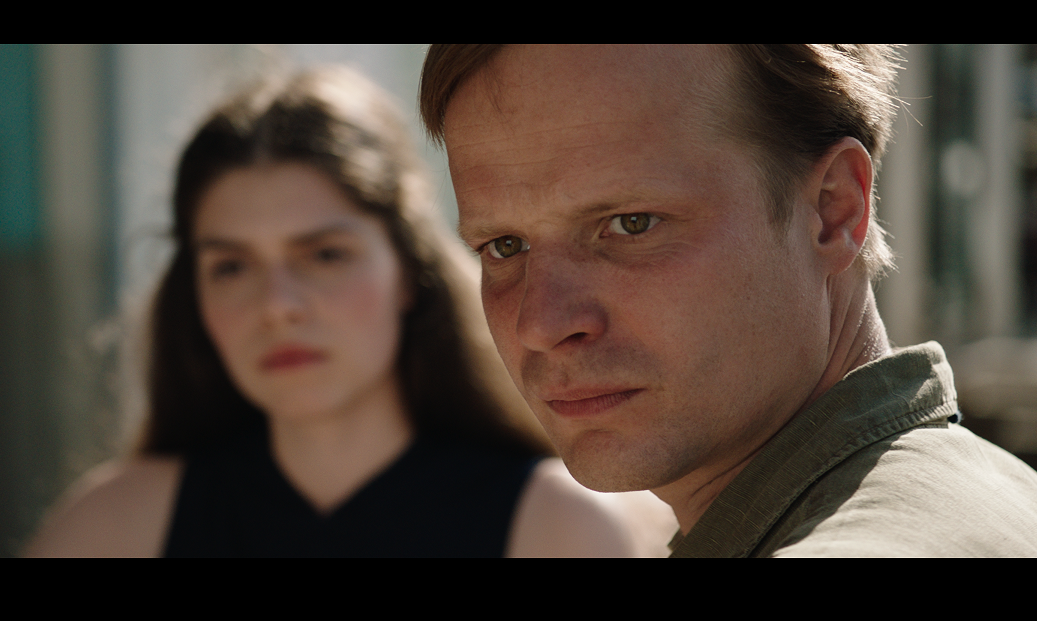
Director Petr Zelenka, master of the black humor brings to Israel his new film DRONMEN (2020), a psychological thriller. Zelenka prefers provocative plots related to politics. “I am proud by the Czech explosives and the Czech hockey” – said one of the film hero. In the center the story of an attempt to assassination on Dick Cheney. The film was party shot in Israel.
Retrospective of the New Czech wave (Czech spring) films is here. COACH TO VIENNA (1966, directed by Karel Kachyňa) was called by the authorities "disgraceful ideological mischief”. For ideological reasons the film was denounced as "disgraceful ideological mischief", anti-Czech, anti-German, and anti-partisan. Kachyňa had to go into exile in …Austria ( What to do: the authorities did not have their Siberia…) Iva Janžurová, one of the best Czech actresses of all time, who played the leading role in the film is celebrating her 80th birthday this year.
Next is the comedy ECCE HOMOLKA (1969), directed by Jaroslav Papouše, who worked with famous Milos Foman,
The documentary and the documentary ANTONIN DVORAK (1990) by Jaromil Jires did not easily paved the way to TV, for beying not modest enough. Now when the world celebrates 180 years from his birthday, it`s OK already.
TIGER THEORY, a 2016 adventure comedy. The life of veterinarian Jan Berger (well-known actor Jiri Bartoska, president of the Karlovy Vary International Film Festival) is usurped by his wife, Olga (Director: Radek Bajgar) is also on the list.
Photos courtesy of the Czech Embassy


